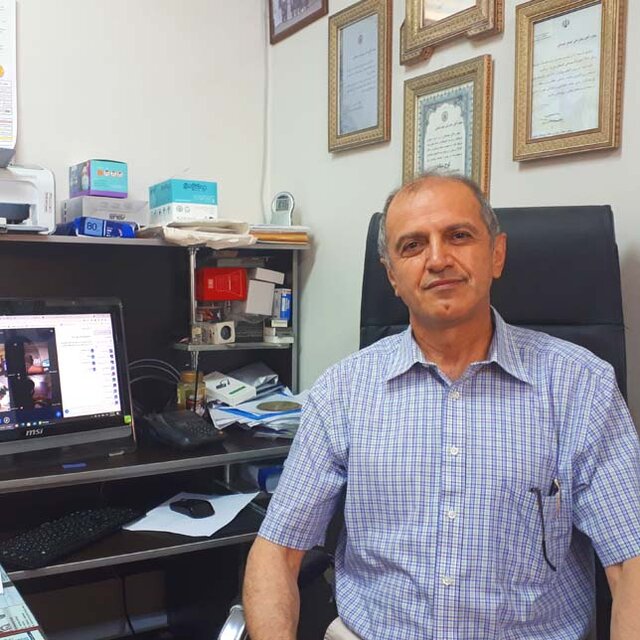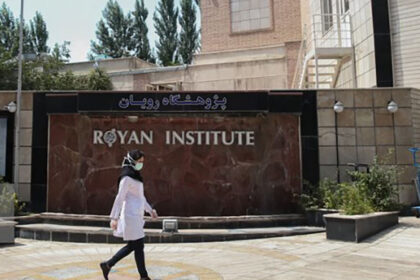ISNA/Isfahan Professor Ali Asghar Ensafi, a prominent professor of chemistry, says of Iran’s scientific paths, research challenges and potential in world competitions.
Professor Ali Asghar Esafi received his doctorate in analysis in the field of analysis in the year 6 (2). Subsequently, as a member of the faculty, he joined the Chemistry Department of Isfahan University of Technology and gained a full -fledged professor in the year 6). He has served as a invited professor at the University of Waterloo Canada (1-5) and the University of Arkansas (1-5). Professor Ensafi is currently heading the Top Research Center for Green Sensors and Green Chemistry from the Ministry of Science, Research and Technology and serves as a professor at the Isfahan University of Technology’s Chemistry Department.
His research fields include the development of chemical and electrochemical sensors and venomas, microfiers and nanosensters with a special focus on DNA and antigen interactions, the development of new materials for energy sources such as fuel cells and energy storage using nanomaterials, and the introduction of voltamter sensors and amprometers.
Ensage has published more than 5 articles in internationally accredited journals and has had more than 5 presenters at national and international conferences.
He has been the author of a colleague of more than eight books, including Academic Press and Spring, and works as editor and editorial member of the International Scientific Journal. According to scientific indicators, he is among the top 1 % of the chemistry scientists.
To learn more about this scientific character, we read the following:
What made you interested in chemistry?
During the student career, there were no possibilities for searching for different disciplines, but having a good secretary has a very effective role in becoming interested in a lesson. I had a very good chemistry secretary, which made me interested in this field and also influenced my field of choice.
How many years have you been working in this field?
I have been in this field since I was a bachelor’s degree, since I was a bachelor’s degree. I have been working on chemistry for more than 5 years.
How did you get to the degree of a professor?
When a person enters the university with a doctorate degree and begins as a member of the faculty, he or she is initially a professor. If it has good scientific and industrial activities and publishes its articles in reputable journals, it can be upgraded to an assistant degree after about 5 years. This process is again, but with the greater strictness, it takes the person to reach a master’s degree. Along the way, a committee called the Authority, which is formed by the Minister of Science, reviews and approves the individual’s scientific competence to promote the professor.

Do you see this ability in your students?
Yes, many of my students work as a professor at various universities of Iran and around the world after graduating from a doctorate and have been able to achieve this scientific degree.
In which branches of chemistry has the potential to compete world?
Iran has long been able to have high ability in various branches of chemistry. Before the revolution, Shiraz University was one of the most prominent scientific centers in this field. After the revolution, despite the challenges, many Iranian graduates have been able to work at world -renowned international universities and companies. In general, chemistry educators in Iran are scientifically and skillful globally.
Isfahan University of Technology What is the plan for the relationship between industry and university in chemistry?
Cooperation between industry and the university has always been of interest, but in the field of industry, experts are less inclined to change and often do not welcome the university entry into the industry because of new challenges. However, this cooperation can lead to the country’s scientific and economic growth. Unfortunately, in many domestic industries, priority is with the purchase of external equipment, even when high quality domestic samples are available. This is one of the main obstacles to the university and industry cooperation.
What are the problems in the research path and what is the biggest problem for students and researchers?
One of the major problems is the sharp decline in research budgets. At 2, my research was $ 6,000 a year, but now that figure has reached less than $ 1,000. Universities are facing a shortage of modern equipment and tools, and even printing scientific articles has faced financial problems. On the other hand, the criteria for employment of faculty members are not very accurate in some cases, and this has led universities to face a decline. As a result, many elite students prefer to immigrate abroad to continue their education or work.

What is your solution to get out of trouble?
One solution is to make a change in supportive behaviors and policies. In the past, a law was to be passed on the basis of which the domestic industries were required to use domestic equipment, but this was not implemented. Unfortunately, at present, many state -owned companies buy foreign equipment at any cost instead of supporting domestic scientists and researchers.
What is your final point?
Unfortunately, the motivation for continuing education and scientific work in the country has declined. Many talented students are not a future for themselves and are thinking of immigration. To succeed in Iran, one must move towards entrepreneurship and the production of knowledge -based products. My advice to students is to establish companies that meet people’s needs, not dependent on state -owned companies. In that case, their success will be guaranteed.
The end of the message
(Tagstotranslate) Provincial-Scientific and Educational (T) Isfahan University of Technology (T) DNA (T) Knowledge Basement (T) University of Shiraz (T) Top Scientist (T) Chemistry
RCO NEWS


















